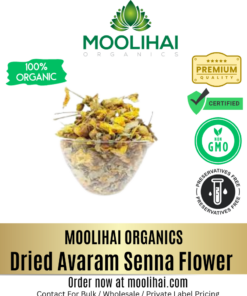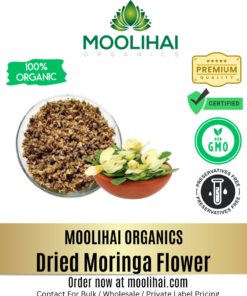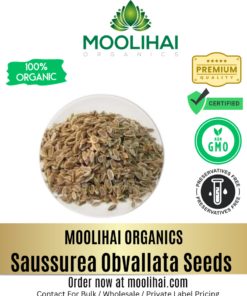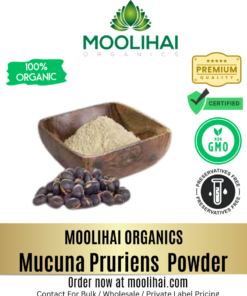Info
Health Benefits of Castor Oil

Castor oil is an ancient natural oil prepared from Ricinus communis plant’s seeds. It has been used for over thousands of years. It is famous for its incredible health benefits and has an unpleasant taste. In ancient Egyptian civilization, castor oil was helpful in stimulating labor in pregnant women. Also, it was burned as fuel in lamps and is used to treat eye irritation. Historical evidence shows that castor beans were used in Egyptian tombs before 4000 BC. The famous queen Cleopatra also has used this natural oil for brightening eyes and also for dry eyes.
Castor seed has a toxic enzyme known as ricin that gets deactivated in the heating process of castor oil. Castor oil is basically used in the manufacture of various medications, skincare, and hair care products. This seed oil possesses antimicrobial, anti-inflammatory, lubricant, and laxative properties. Therefore, it is useful in relieving constipation and promoting hair growth.
Castor oil is a pale yellow oil that is rich in antioxidants, Vitamin E, proteins, and Omega 6 & 9. These substances are useful in treating most skin and hair-related issues. It aids in the reduction of hair fall, increases hair growth, prevents premature hair greying, and keeps the scalp clean. In skin, it treats pigmentation issues, acne, and aging issues.
Castor oil’s health and other benefits are due to its high unsaturated fatty acids. It improves blood circulation, thymus gland health, and aids in lymphatic drainage massage. Using castor oil will enhance the production of lymphocytes that fight against the invaders like bacteria, microbes, and other toxins entering your body. The lymphatic system creates an effect on the digestive and circulatory systems, and therefore the increased production of lymphocytes will maintain the heart and digestive system health.
What is Castor Oil?
Castor oil is a semi-transparent yellow tint liquid that is used to revitalize the human body, especially skin and hair. Castor oil gets broken down into ricinoleic acid in the small intestine, which accelerates the digestion process.
Castor oil’s ricinoleic acid and other fatty substances enhance absorption in the skin and are helpful in the treatment of dermatosis, psoriasis, and acne.
How Does Castor Oil Work?
Using this odorless oil will give you a clean feel. Some studies say that castor oil has a comedogenic rating of 1. Comedogenic means a specific ingredient that blocks skin pores. The lower comedogenic rating makes it better for use. Hence, castor oil has a comedogenic rating of 1 that suits all skin types and doesn’t block skin pores.
In this castor oil article, we are going to see the health benefits of castor oil, nutritional values, how it acts on dosha, and its possible side effects.
Castor Oil In Ayurveda
In the Ayurvedic medicinal system, Castor oil is considered as a Master oil because of its powerful healing abilities. And, it is called Gandharvahasta or Eranda taila in Ayurveda. The main use of castor oil is in the treatment of alopecia (sudden hair loss), wrinkles, constipation, ovarian cysts, piles, asthma, and arthritis.
The main constituents of castor oil are ricinoleic acid, oleic acid, palmitic acid, stearic acid, linoleic acid, and dihydroxy stearic acid. These chemical compounds in castor oil are the reason for its healing property, and so it is used widely in Chinese, Unani, Siddha, and Ayurvedic medicinal systems.
According to Ayurvedic text, castor oil gives sweet, pungent, and astringent tastes. These characteristics provide nourishment, eliminate salts and other toxic substances from the body. Applying castor oil externally will cool down the body and aids in reducing the effect of pita and skin irritations due to heat.
For more than thousands of years, castor oil has been used for its potent therapeutic uses. It has been mentioned in several Puranic texts, Vedas, and other ayurvedic texts. The science of Ayurveda uses this effective oil for the following purpose, including
Vranahara – treat wounds
Shramahara – treat tiredness
Krumihara – relieves worms
Sulaghnam – relieves pain
Anila Shodhanam – flushes unhealthy Vata
Rasayana – anti-aging
Vardhamahara – cures hernia
Virechana – treats constipation
Gulmahara – treats abdominal tumors
Jwara hara – cure fevers
Kustha – treats skin disorders
Keshya – treats hair problems
Dahahara – relieves burning sensation
Varnya – improves complexion
Ayurvedic Properties and Effect On Doshas
The taste (Rasa) of Castor Oil in Ayurveda are mentioned as Tikta Rasa (bitter taste) and Madhura Rasa (sweet taste)
It has five powerful qualities (Gunas), namely Guru (heavy), Ushna (hot), Sara flowing), Balyam (strength promoter), and Visram Gunas (foul-smelling qualities).
The Virya (potency) of castor is Ushna Virya (hot potency)
The Vipaka (final outcome taste after the digestion process) of castor oil is Katu (pungent taste).
The castor oil is heavy and oily, and it calms down Vata (space and air) doshas and Kapha (earth and water) doshas. Yet, excess consumption of castor oil will increase the chance of Pitta (fire and air) doshas.
Apart from the intrinsic properties and doshas, castor oil also shows a positive effect on various Dhatus (body tissues) of the human body, including Rasa (Plasma), Rakta (Blood), Mamsa (Muscles), Asthi (Bones), and Shukra (Reproductive Fluids).
Castor Oil Benefits
Treats Constipation
The well-known health benefit of castor oil is that it aids in treating constipation complications. This oil is an excellent natural laxative agent, and so intaking castor oil eases your bowel movement.
While consuming castor oil, it breaks down, and ricinoleic acid (fatty acid) is released in the intestine, which acts as a laxative. Castor oil generates heat energy in the digestive tract and triggers the process of digestion and cleanses the system by improving proper bowel movement. This oil increases the movement of intestinal muscles to push the waste material out of the intestines.
But you should consume castor oil in correct quantity; otherwise, it will lead to diarrhea, abdominal cramping, vomiting, or nausea (which are common symptoms). In the worst case, it damages bowel muscle functions. Better consult the medicinal advisor.
Studies say that castor oil can give relief from the symptoms of Constipation. They also reduce straining during the excretion process and reduce the feel of incomplete bowel movements.
How to use:
Take a 15 ml dose of castor oil once a day. Castor oil works effectively when consumed during the day. After consumption, you will experience bowel movements within 2 to 3 hours.
Helps in Labor
Castor oil has labor-inducing properties because of its laxative ability. Intaking castor oil will cause spasms – sudden involuntary muscular contraction in the intestines. Further, it triggers the bowels, uterus for contraction. The ricinoleic acid seen in the castor oil stimulates the EP3 prostanoid receptor (muscle relaxant) in the uterus, which further aids in delivery. Inducing labor is a healthy medical practice for the safety of mother and baby.
Researchers say that women intaking castor oil can go into labor within 24 hours. It can also induce labor in post-date multiparous (giving birth to more than one child) women. But it also has some adverse effects in some cases.
Aids in Arthritis and Joint Pains
Ricinoleic acid is the main fatty acid seen in castor oil which has an excellent analgesic and anti-inflammatory properties. Castor oil is a leading natural remedy that is used in the treatment of Arthritis and inflammation. In olden days, castor oil was used as a massage oil for its anti-inflammatory behavior. Muscle and joint pains can be treated by applying castor oil on the affected skin surface.
Research says that castor oil can be used in treating the primary-stage knee osteoarthritis. Giving a castor oil capsule three times a day to osteoarthritis patients for four weeks will produce better results in reducing Arthritis symptoms.
How to use:
Just massage the joint with castor oil and then place a hot water bag. It will give immense relief from muscle or joint pain. For better results, do this process regularly twice a week.
Treats Plantar Fasciitis and Hemorrhoids
Plantar fasciitis is a health condition in which inflammation happens at the thick tissue around the bottom of your foot. The study found that castor oil provides relief to patients with plantar heel spurs.
In Hemorrhoids, the lowest part of the rectum and anus veins get swollen, which causes discomfort and bleeding. Research says that the anti-inflammatory of the castor seed oil treats hemorrhoids.
Treat Fungal Infection
Castor oil also fights against Candida, a fungal infection that may damage human tooth roots. Candida albicans also cause dental problems like plaque formation and gum infections. Castor oil fights against Candida and keeps your mouth healthy with its antifungal property. Some research states that castor oil can treat ringworm with their undecylenic acid.
Improves Blood Circulation
Proper blood circulation is the main factor in maintaining your body healthy. The circulatory system is vital to keep us alive by providing oxygen to our cells and tissues. Massaging your body with castor oil will improve blood flow.
Acne
Acne is a significant skin issue in teenagers and adults which cause painful pimples, and blackheads. Here, castor oil, with its antimicrobial and anti-inflammatory properties, is useful in decreasing acne problems.
Inflammation is a significant factor in the formation of acne. By applying castor oil to acne, you can decrease inflammation-related issues. Ricinoleic acid, the main fatty acid, can prevent the growth of bacteria (Staphylococcus aureus) in acne. Thus applying Castor oil will reduce inflammation and will provide smooth and silky skin.
Studies claimed that castor oil shows an antibacterial effect, thus inhibiting bacteria’s growth in the skin surface, including Staphylococcus aureus.
Moisturizing Agent
Castor oil has triglycerides that help in locking the moisture of the skin surface and thus makes it an efficient remedy for dry skin. Ricinoleic acid, a monounsaturated fatty acid found in castor oil, makes it a natural moisturizer that helps in the smoothening of irritated skin. These fats act as humectants that maintain moisture by preventing water loss through the skin surface.
Castor oil is also used in cosmetic products such as lotions, makeup, and cleansers to improve hydration. Most moisturizing products available in the market have harmful ingredients like preservatives, perfumes, and dyes that may irritate your skin. So better use castor oil to avoid side effects.
However, castor oil is a high concentration oil; better mix this oil with almond, olive, and coconut oil to get ultra-hydrating and moisturizing skin.
How to use:
Apply a few drops of castor oil on your face and then gently massage it in circular motions. Leave the oil for a few hours or overnight and then wash it in the morning. You can steam to open your pores for better absorption of the oil.
Better Skin Complexion
The fatty acids found in castor oil enhance the growth of skin tissue and thus restore skin tones. Mix a few amounts of castor oil with a carrier oil such as sesame, sunflower, or coconut and apply it to your skin to avoid uneven complexion.
Clears Skin Blemishes
Castor oil eliminates the toxic substance present in the skin and treats blemishes with pungent and astringent effects. Apply a few amounts of castor oil to the affected area and keep it for a few minutes to absorb deeply. For better results, use it regularly to get a radiant, smooth, soft, and clear skin surface.
Treat sunburns And Scars
Applying castor oil regularly aids in fading stretch marks. For a good result, use castor oil twice a day to the infected area. It is also used as a good sunburn healer with an SPF value of 6, and therefore it is used in sunscreens.
Sensitive Kkin
Most people have sensitive skin, so applying cosmetic products to their skin will damage their skin surface. But here, castor oil has a low comedogenic score of 1, which clog pores and minimize the risk of blackheads.
As a Cleanser: Castor oil is rich in triglycerides that are useful in removing the dirt from the skin surface.
Delayed Signs Of Aging
Castor oil treats wrinkles by penetrating into the skin surface and increases the production of collagen. It softens, hydrates, and rejuvenates the skin. Just apply a few drops of castor oil over the wrinkled area and leave it overnight. Do it regularly to get effective results.
Further, it reduces free radicals that accelerates the aging process. You can apply this oil under your eyes, around your mouth, on your forehead, and neckline. And then, wash it in the morning.
For Hair
According to Ayurveda, excess body heat leads to hair loss by burning the hair follicles. Here, castor oil cools down the hair follicles and provides nourishment to the hair. Apart from hair, it is also used for thickening eyebrows or eyelashes by simply applying castor oil over it with the tip of your finger. You can also use a mascara brush to apply oil. It is a glossy alternative to mascara.
Castor oil is the best hair oil to make your hair long and shiny. It is enriched with omega-6 fatty acids, which penetrate deep into the root of the hair and enhance blood circulation. Thus, applying castor oil twice a week makes your hair grow faster, stronger, shiny, thicker, and dandruff-free.
Clean your Scalp
Castor oil possesses antifungal, anti-inflammatory, and antibacterial properties, which aids in removing dandruff, dirt and cure infections on the scalp.
How to use: Take one tablespoon of castor oil and olive oil, and then add the juice of half lemon to it and mix well. Now apply this mixture to the roots of your hair. Leave it for about 30 minutes, and then rinse with a mild shampoo.
For Hair Fall
Castor oil is also an excellent remedy in controlling hair fall.
How to use: Mix castor and olive oil in the ratio of 4:6 and apply it twice a week to get a good result.
You can also prepare a hair mask with castor oil and methi seed powder and apply it once a week to prevent hair fall.
Thickens Hair
Castor oil provides adequate nourishment to the hair follicles that make them thicker and more robust. In India, people use castor oil for the baby’s hair, to get thicker and shiny.
How to use: Take a small quantity of castor oil in the palm and use your fingertips to massage it in the scalp. Leave the oil overnight, and then take a bath with warm water.
Moisturizes Hair
Castor is a thick and highly concentrated oil that aids in locking the moisture. It will make your hair shiny. Apply castor oil to your hair before going to bed and then take a bath the next morning. Or, you can also add a few drops of castor oil into the shampoo bottle.
Prevent Early Greying
Based on Ayurveda, Pitta dosha is the main reason for early hair greying. The cooling potency of castor oil pacifies pitta and thus maintains the original color of your hair. Some research says that castor oil treats split ends.
How to use: One can apply a few drops of castor oil to the scalp and hair with discoloration. Leaving the oil for a few hours to get good outcomes.
Mixing jojoba oil, mustard seed oil, and castor oil can also treat gray hair issues.
Moisturizes the Scalp
Worried about your dry scalp! Then consider using castor oil to moisturize the scalp. Just apply castor oil directly on the scalp and massage it. If you have sensitive skin, just dilute the castor oil with a carrier oil like sesame, sunflower, or coconut oil. Castor oil is rich in Vitamin E, omega 6 essential fatty acids, and minerals which increase the blood flow and give nutrition to hair follicles. It is also a humectant that maintains moisture in the hair.
Used as Food Preservative
Castor oil is also used in the food industry as additives, flavorings, mold inhibitors, and packaging. In India and Nepal, food grains like rice, wheat, and pulses are preserved using castor oil to prevent them from rotting.
How is Castor Oil Prepared?
Castor oil is extracted from the seeds of castor by the mechanical pressing method, or solvent extraction method, or a combination of both pressing and extraction processes. The fresh castor seeds are collected and dried under sunlight for a week. After the seeds get dried, just remove the outer coating (husk) of castor seed with the use of a dehuller machine.
Clean the dry seeds to remove impurities like husk and then heat it at a particular temperature to harden the inner side of the seeds. This makes the seed perfect for the extraction process. Further, the seeds are heated in a steam-jacketed press to eliminate moisture and this process will help in oil extraction. The streamed seeds are dried before starting the extraction process. Then, the hydraulic press is used to extract oil by crushing the castor seeds.
What Is The Nutritional Composition Of Castor Oil?
Ricinoleic acid 85–95%
Oleic acid 2–6%
Linoleic acid 1–5%
α-Linolenic acid 0.5–1%
Palmitic acid 0.5–1%
Stearic acid 0.5–1%
Dihydroxystearic acid 0.3–0.5%
Others 0.2–0.5%
Dosage Considerations (Orally)
Adult Dosage: 15-60 mL
under 2 years: 1-5 mL
2-12 years: 5-15 mL
over 12 years: 15-60 mL
Precaution and Possible Side Effects of Castor Oil
Pregnant women should avoid taking castor oil as it induces labor. It also causes an allergic reaction when applied externally. Therefore, do a patch test before using it. Iit is safe to use oil externally, but to take it internally consult your doctor.
Castor oil has a compound called ricin, which is extremely dangerous. But it is removed in the refining process of castor oil, so you need to be careful when you prepare castor oil on your own. If you buy castor oil in the market, then you no need to worry about that. The main side effects of using castor oil are
--> Dizziness
--> Abdominal cramps
--> Diarrhea
--> Nausea
--> Electrolyte disturbance
--> Heartburn
--> Low blood pressure
--> Pelvic congestion
Bottom Line
In olden days, people used castor oil to treat various health issues. It is used in treating hair and skin problems and also gives relief from constipation. Castor oil is safe when consumed in limited amounts. But, excess consumption may lead to side effects. And, you need to consult your doctor in case of any severe side effects.




























I am so excited reading what is written about Castor oil. It used to be our monthly practice taking castor oil when we were growing up. It it healthy for adults over 65 yrs of age to be taking it monthly still?